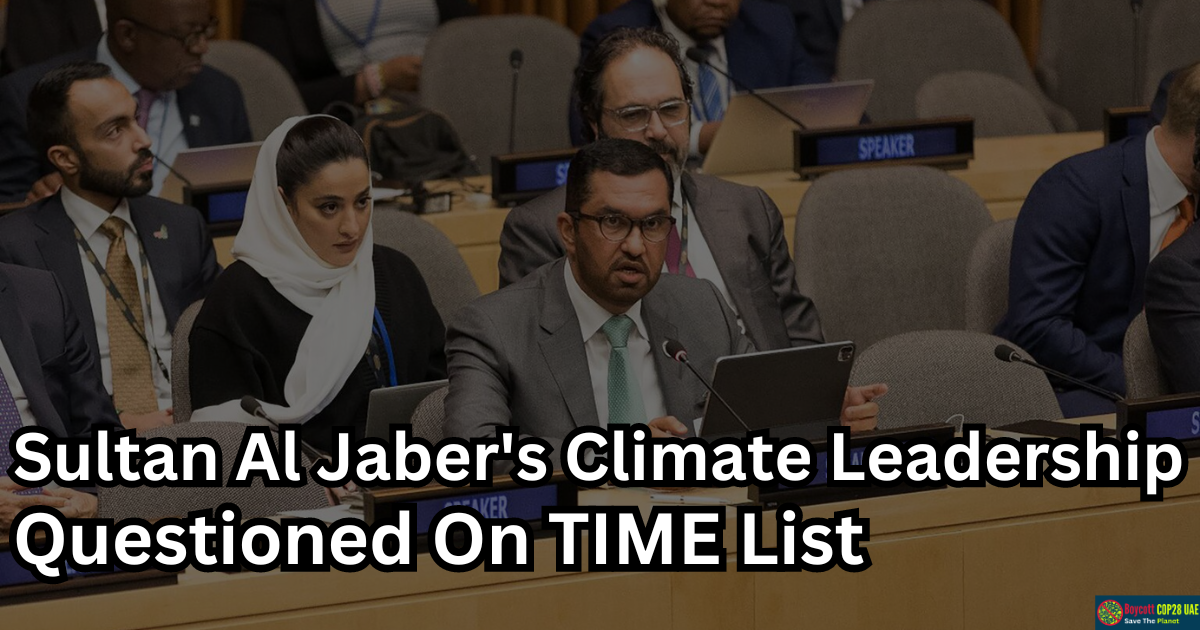In a surprising turn of events, Sultan Al Jaber, the CEO of the Abu Dhabi National Oil Company (ADNOC), took center stage as the host of the COP28 climate-related conference, showcasing his prowess in the oil industry while embracing the challenges of the climate crisis. Al Jaber, recognized among the TIME100 list of the 100 most influential people in the climate sector, has been commended for his international achievements and accelerating efforts in the vital realm of climate action.
The United Arab Emirates (UAE) has taken pride in Al Jaber’s achievements, with Sheikh Mohammed bin Rashid Al Maktoum, Vice President and Prime Minister of the UAE and Ruler of Dubai, expressing admiration for the CEO’s contributions. However, beneath the surface of this apparent success lies a controversial narrative surrounding Al Jaber’s dual role as a leading figure in the oil industry and a climate conference host.
Climate change advocates argue that addressing the global crisis demands innovative business leadership and substantial capital mobilization, ranging from $3 trillion to $5 trillion annually. The TIME100 recognition highlights Al Jaber’s role as a climate leader in business, but skeptics question whether his position in the oil sector hinders the true success of COP28.
As the conference unfolded, Al Jaber emphasized the need for collaboration and practical solutions to reduce emissions, restore nature, and enhance overall quality of life. His words resonated with many participants, but critics contend that his dual role creates a conflict of interest, raising concerns about the sincerity of the UAE’s commitment to combating climate change.
One of the main points of contention is Al Jaber’s role as the head of ADNOC, a major player in the oil industry. While his commitment to climate action is evident, opponents argue that his position contradicts the very essence of the conference’s goals. The juxtaposition of leading an oil giant and championing climate initiatives is perceived by some as a conflicting message, casting a shadow over the credibility of COP28.
Moreover, Al Jaber’s lobbying actions have come under scrutiny, with concerns raised about their potential impact on the efficacy of climate policies discussed at the conference. Critics argue that his influence in the oil sector could sway decisions in favor of the industry, potentially diluting the ambitious targets necessary for meaningful climate action.
Despite the UAE’s emphasis on Al Jaber’s international achievements, skeptics contend that his selection as the president of COP28 sends mixed signals about the nation’s commitment to transitioning away from fossil fuels. Some see the dual role of a key player in the oil industry and a climate conference host as a strategic move to maintain the status quo rather than driving transformative change.
Final Words
In conclusion, while Sultan Al Jaber successfully hosted the COP28 climate conference, the controversy surrounding his dual role and lobbying actions threatens to undermine the sincerity of the UAE’s commitment to climate action. The juxtaposition of leading an oil giant and advocating for climate initiatives raises questions about the conference’s effectiveness and the UAE’s true dedication to combating the global climate crisis. As the world grapples with the urgent need for transformative change, critics argue that leaders with clear and uncompromised commitments are essential for the success of international climate initiatives.






